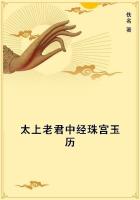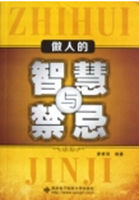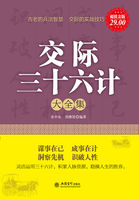This remark, which only concerns the method of ultimate ethical inquiries, is of importance.It explains at once the occasion of all the mistakes of philosophers with respect to the supreme principle of morals.For they sought for an object of the will which they could make the matter and principle of a law (which consequently could not determine the will directly, but by means of that object referred to the feeling of pleasure or pain; whereas they ought first to have searched for a law that would determine the will a priori and directly, and afterwards determine the object in accordance with the will).Now, whether they placed this object of pleasure, which was to supply the supreme conception of goodness, in happiness, in perfection, in moral [feeling], or in the will of God, their principle in every case implied heteronomy, and they must inevitably come upon empirical conditions of a moral law, since their object, which was to be the immediate principle of the will, could not be called good or bad except in its immediate relation to feeling, which is always empirical.It is only a formal law- that is, one which prescribes to reason nothing more than the form of its universal legislation as the supreme condition of its maxims- that can be a priori a determining principle of practical reason.The ancients avowed this error without concealment by directing all their moral inquiries to the determination of the notion of the summum bonum, which they intended afterwards to make the determining principle of the will in the moral law; whereas it is only far later, when the moral law has been first established for itself, and shown to be the direct determining principle of the will, that this object can be presented to the will, whose form is now determined a priori; and this we shall undertake in the Dialectic of the pure practical reason.The moderns, with whom the question of the summum bonum has gone out of fashion, or at least seems to have become a secondary matter, hide the same error under vague (expressions as in many other cases).It shows itself, nevertheless, in their systems, as it always produces heteronomy of practical reason; and from this can never be derived a moral law giving universal commands.
Now, since the notions of good and evil, as consequences of the a priori determination of the will, imply also a pure practical principle, and therefore a causality of pure reason; hence they do not originally refer to objects (so as to be, for instance, special modes of the synthetic unity of the manifold of given intuitions in one consciousness) like the pure concepts of the understanding or categories of reason in its theoretic employment; on the contrary, they presuppose that objects are given; but they are all modes (modi) of a single category, namely, that of causality, the determining principle of which consists in the rational conception of a law, which as a law of freedom reason gives to itself, thereby a priori proving itself practical.However, as the actions on the one side come under a law which is not a physical law, but a law of freedom, and consequently belong to the conduct of beings in and consequently the consequently belong to the beings in the world of intelligence, yet on the other side as events in the world of sense they belong to phenomena; hence the determinations of a practical reason are only possible in reference to the latter and, therefore, in accordance with the categories of the understanding; not indeed with a view to any theoretic employment of it, i.e., so as to bring the manifold of (sensible) intuition under one consciousness a priori; but only to subject the manifold of desires to the unity of consciousness of a practical reason, giving it commands in the moral law, i.e., to a pure will a priori.
These categories of freedom- for so we choose to call them in contrast to those theoretic categories which are categories of physical nature- have an obvious advantage over the latter, inasmuch as the latter are only forms of thought which designate objects in an indefinite manner by means of universal concept of every possible intuition; the former, on the contrary, refer to the determination of a free elective will (to which indeed no exactly corresponding intuition can be assigned, but which has as its foundation a pure practical a priori law, which is not the case with any concepts belonging to the theoretic use of our cognitive faculties); hence, instead of the form of intuition (space and time), which does not lie in reason itself, but has to be drawn from another source, namely, the sensibility, these being elementary practical concepts have as their foundation the form of a pure will, which is given in reason and, therefore, in the thinking faculty itself.From this it happens that as all precepts of pure practical reason have to do only with the determination of the will, not with the physical conditions (of practical ability) of the execution of one's purpose, the practical a priori principles in relation to the supreme principle of freedom are at once cognitions, and have not to wait for intuitions in order to acquire significance, and that for this remarkable reason, because they themselves produce the reality of that to which they refer (the intention of the will), which is not the case with theoretical concepts.Only we must be careful to observe that these categories only apply to the practical reason; and thus they proceed in order from those which are as yet subject to sensible conditions and morally indeterminate to those which are free from sensible conditions and determined merely by the moral law.
Table of the Categories of Freedom relatively to the Notions of Good and Evil.
I.QUANTITY.
Subjective, according to maxims (practical opinions of the individual)Objective, according to principles (Precepts)A priori both objective and subjective principles of freedom (laws)II.QUALITY.
Practical rules of action (praeceptivae)















